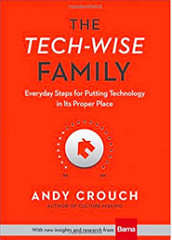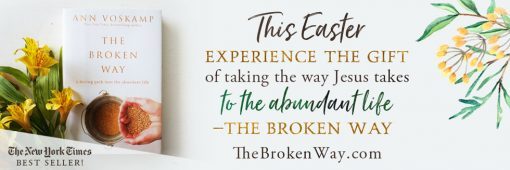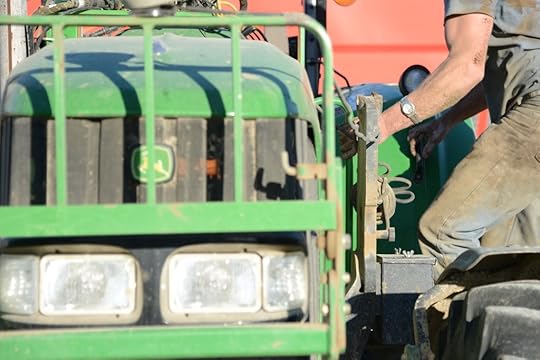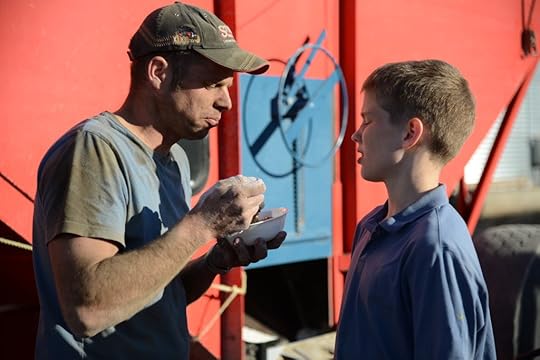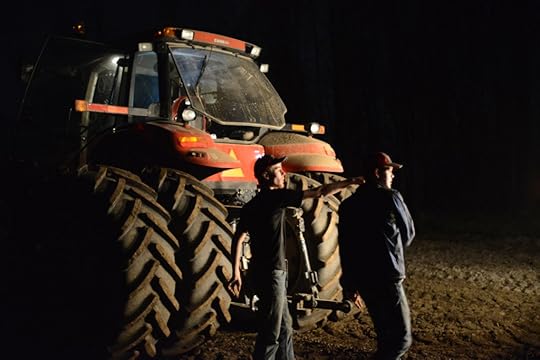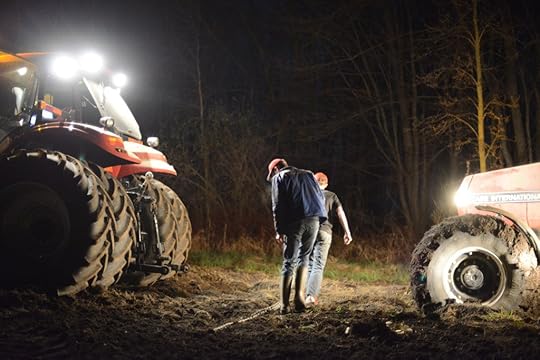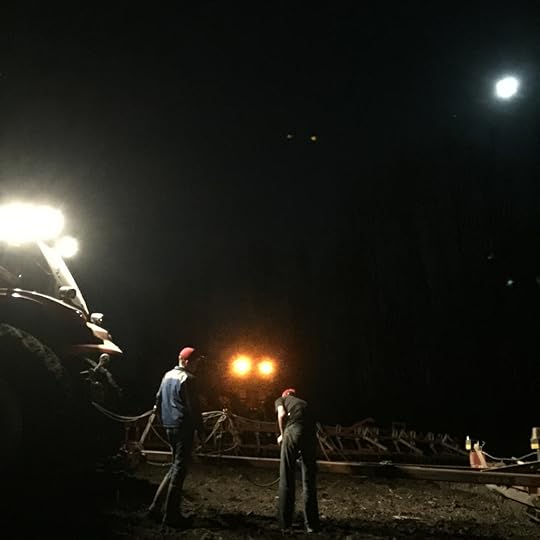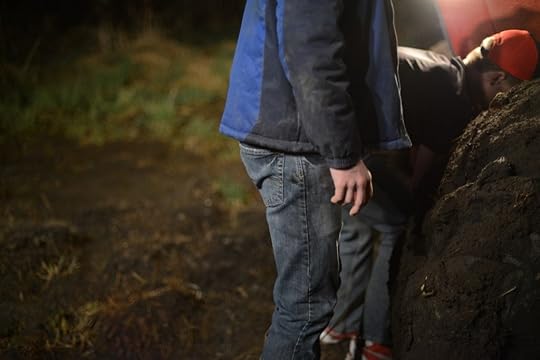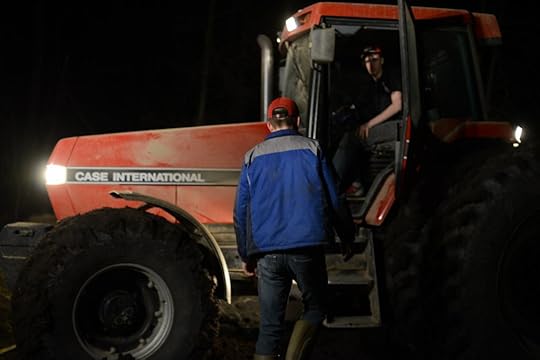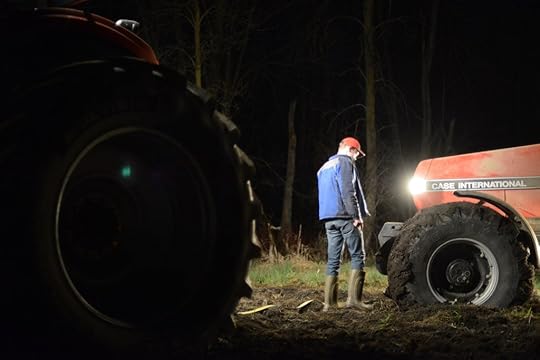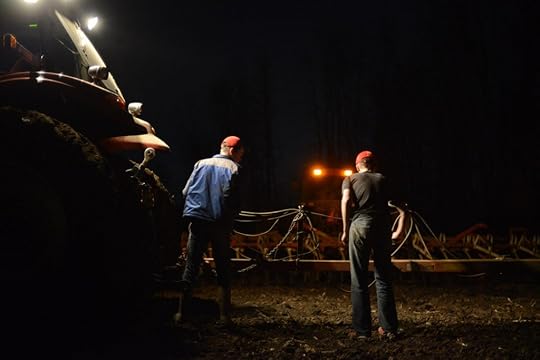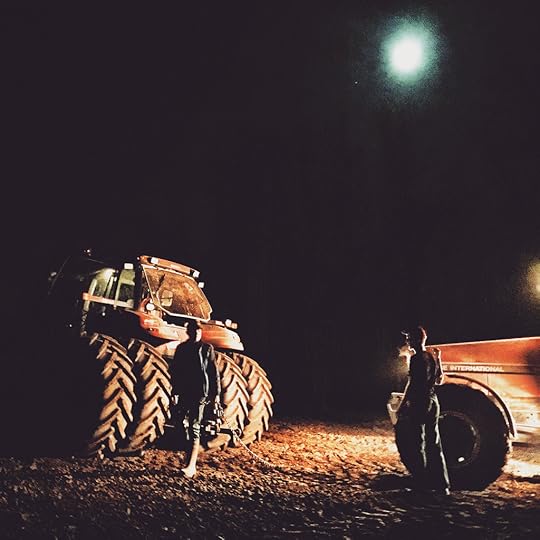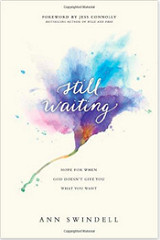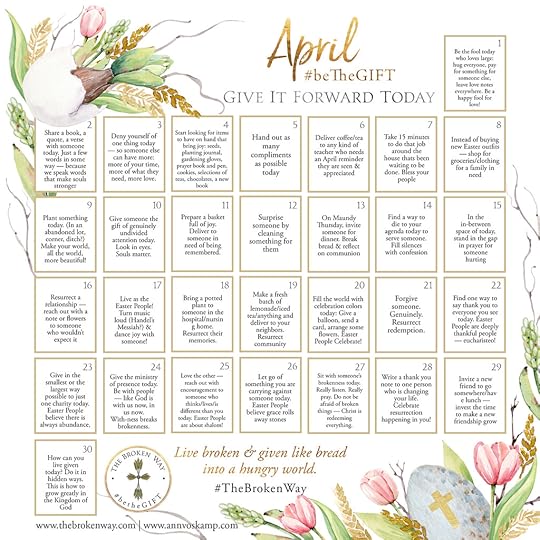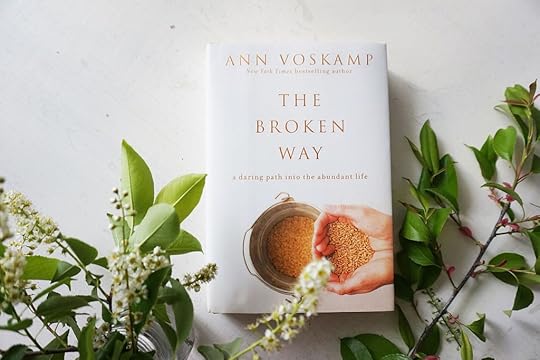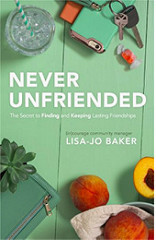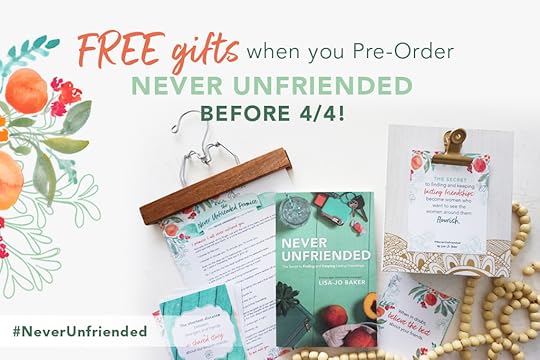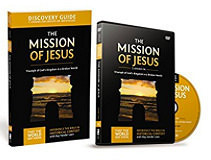Ann Voskamp's Blog, page 145
April 7, 2017
How to be a Tech-Wise Family & manage kids, technology & family
You may know Andy Crouch as I know him—as a brilliant author and speaker who consistently offers wisdom to the church on how to be creators of culture. His new book certainly continues that work, but it also reflects another side of Andy: a dad who has poured his life into the two children—now teenagers—he has raised with his wife Catherine. I can’t think of a more crucial topic than this book—the way technology is shaping, or misshaping, family life — The Tech-Wise Family. Andy is not anti-technology, but he sees, as so many of us do, the dangers of letting technology crowd out the best parts of family life—cooking, playing, talking, singing, and praying. This isn’t a book about getting rid of technology, but about using it wisely, in the right places and times—and keeping it out of the wrong places and times. It’s a grace to welcome Andy to the farm’s front porch today…
All the best things we want for our families—our children and ourselves—involve creating, rather than consuming.
And the best way to have a creative life, rather than a consumer life, is to make it part of the furniture.
Fill the center of your life together—the literal center, the heart of your home, the place where you spend the most time together—with the things that reward creativity, relationship, and engagement.
Push technology and cheap thrills to the edges; move deeper and more lasting things to the core.
This was once natural, indeed unavoidable.
Almost every home once had a hearth, the fire that gave warmth, light, heat for cooking—and entertainment, too, with its dancing flames and distinctive glow. The Latin word for hearth, focus, reminds us that fire was once the center of our homes.

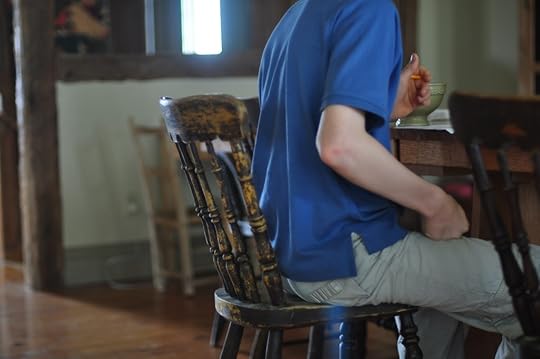

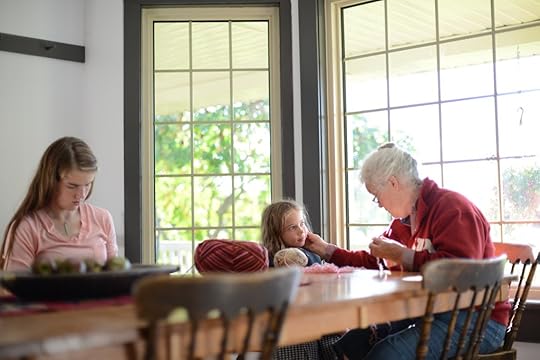

[image error]
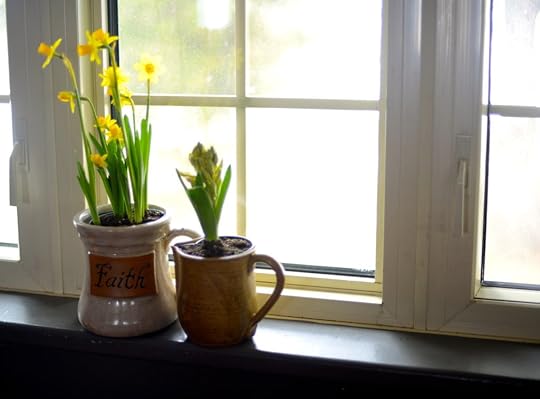



Fire is a marvelous tool—maybe the first human tool. But it is not technology in the sense we usually use the word, with its easy-everywhere simplicity. Fire is dangerous and difficult to work with. Tending a fire, outside or indoors, requires skill, work, and care.
Today, we have furnaces instead of hearths.
Furnaces warm our homes effortlessly, but they do nothing to concentrate our energy, relationship, attention, and delight the way the hearth did.
They ask nothing of us (except prompt payment of the monthly heating bill) and they give us one simple thing: easy warmth everywhere. Reflecting their unrewarding and disengaged nature, we put them somewhere out of the way, in a closet or in a basement. Rightly so—a furnace is a boring thing, and usually ugly, too.
But homes still need a center, and the best things to put in the center of our homes are engaging things—things that require attention, reward skill, and draw us together the way the hearth once did.
So here is a simple test of whether your home is a tech-wise space:
find the place that is its emotional center—the place where your family spends the most time and the most energy—and take an inventory of what you see there.
Are the most visible things more like a hearth, or more like a furnace?
Our own home is a smallish building, with three bedrooms on the second floor and an open living space on the first floor—living room, dining room, and kitchen all flowing together. We’ve worked over the years to arrange that space in a way that minimizes technology’s presence.
If you walk into our first floor, you’ll see paintings. Books. A few (impressively hardy) house plants. A grand piano and a string quartet’s worth of instruments. A cabinet full of board games. An oven and stovetop. A dining table, with candles on the table and in the chandelier overhead. And, yes, a fireplace we were lucky enough to acquire with the house.
What do these furnishings have in common?
Some are basic and essential—the dining table and the stove. Others, like the art and the piano, are in one sense totally optional. But all of them require skill and attention, and sometimes a great deal of both, to deliver their rewards.
Our house is hardly a technology-free zone. If you look carefully you can see plenty of easy-everywhere technological devices, from the dishwasher and refrigerator to the electric lights overhead—as well as the invisible radio frequency signals carrying cell and Wi-Fi data.
But almost all the devices on our first floor can be—and regularly are—replaced by thoroughly non-technological items.
Bookshelf speakers provide music, but we can also sit down at the piano, or pull out the violin, and make our own.
We can microwave our meals (which is great for making the best use of leftovers), but we can—and mostly do—cook them from scratch.
Even the lights and the heat can be replaced by candles and fireplace. Some of our happiest times as a family have been spent on this first floor, lit entirely by candlelight and the glow of a wood fire. Why wait for a power outage?
The Wi-Fi and cell signals are there, all right—but we can choose to ignore them, turning instead to conversation, music, books, or silence. Indeed, on Sundays that is what we intentionally do, all day long.
And all the most beautiful and striking things—everything that would start a conversation or capture a child’s attention—require our active engagement.
Children love this, by the way.
They thrive in a world stocked with raw materials. Too often, and with the best of intentions, we fill their world with technology instead—devices that ask very little of them. A cheap electronic keyboard makes a few monotonous sounds, while an expensive one promises to make all kinds of sounds. But actually, neither the cheap keyboard nor the expensive one has anything like the depth and range of possibility of an acoustic piano.
A single pencil can produce more “colors” of gray and black than the most high-tech screen can reproduce. For a child’s creative development, the inexpensive, deep, organic thing is far better than the expensive, broad, electronic thing.
And yet we are constantly tempted to give them toys that work on their own—that buzz and beep and light up without developing any skill. Why, when children of all people can invent more buzzes and beeps with their own lungs and tongue and teeth than any toy will ever make?
Children quickly grow bored with devices that ask little of them. Their rooms and our attics become cluttered with the plastic castoffs that provided only one day or month’s worth of delight.
Making good choices about technology in our families is more than just using internet filters and determining screen-time limits for our children. It’s about building character, wisdom, and courage rather than accepting technology’s promises of ease and instant gratification.
It’s about developing our heart, mind, soul, and strength when we’re tempted to settle for entertainment and consumer satisfaction. And it’s definitely not just about the kids.
Skip the plastic, skip the batteries, skip the things that work on their own. Or, if they find their way into your home anyway, put them at the edges.
This is the central nudge of the tech-wise life: to make the place where we spend the most time, the place where technology’s “easy everywhere” — is hardest to find.
Andy Crouch is an author, speaker, musician, and dad–has shaped the way our generation sees culture, creativity, and the gospel. In addition to his books Culture Making, Playing God, and Strong and Weak, his work has been featured in Time, the Wall Street Journal, the New York Times, and Lecrae’s 2014 single “Non-Fiction.” He was executive editor of Christianity Today from 2012 to 2016 and is now senior strategist for communication at the John Templeton Foundation.
Alongside in-depth original research from Barna Group that shows how families are wrestling with technology’s new realities, in The Tech-Wise Family, Andy Crouch takes parents beyond the typical questions of what, where, and when to show us that in a world full of devices, there’s a way to choose a better life than we’ve imagined. What family doesn’t need this help right now?
[ Our humble thanks to Baker for their partnership in today’s devotion ]

April 5, 2017
You’ll Need This When Your Life is On Fire: When Your Hopes & Dreams Burn Down (The Theology of Abundance & The Myth of Scarcity)
When I woke up yesterday morning, three fire stations and dozens of firefighters were out on the highway, wielding water hoses at flames licking out the windows of a little country church around the corner here.
Smoke threaded from the steeple straight up the sky like it was an ashen seam between heaven and earth. Were there ashes around the pulpit, like God’s Word lit the place on fire?
Does the passion that light fire in our bones — always leave a trail of ashes through our hopes?
A teenager told me the hardest things last night.
A woman I’ve prayed with for years, she told me that her husband looked her in the eyes yesterday and said, “I don’t love you anymore…” — and she curled up in a fetal ball on the bathroom floor and sobbed and wondered how abandonment can feel like being torn from the warmth of a womb and you’re left gasping to breathe, how it can feel like a cold wind on your bare back and there’s no one who can shield you from the relentless chill.
I had no words — only could feel this ember burning up my throat.
Our baby cry-howled through the night last night. I rocked her through the shadowed hours and thought of fathers in Syria who rocked the bodies of their chemical affixiated dead daughters and all across your centre, you can feel the slow scorching of this old broken world.
On the brink of holy week, the way we are all on, is our own Via Dolorosa. Suffering is at the burning core of the world — because love is at the core of the world.
Your world can feel like it’s kinda burning and your people are on fire.
And you need at least person to stop trying to save or rescue you, one person to ignore all the panic and alarms, and just come sit with you in your burn.
In your burn, what you need is to feel the heart of Christ burning for you.
Everyone needs someone to be with them in their fire.” ~The Broken Way
I stood once on the side of a mountain, beside a burn-scorched tree.
Stood there running my hands along the ruddy bark of that burn-scarred tree, and I’m telling you, that if you’re honest, life can smell like stinging smoke in the nostrils.
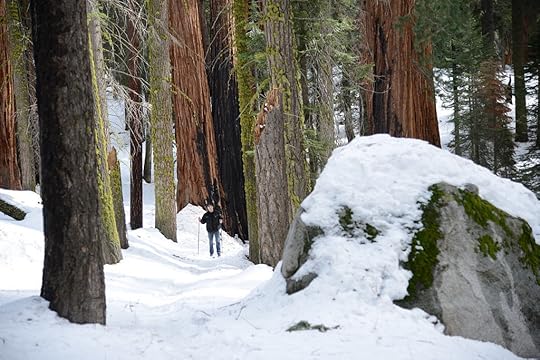
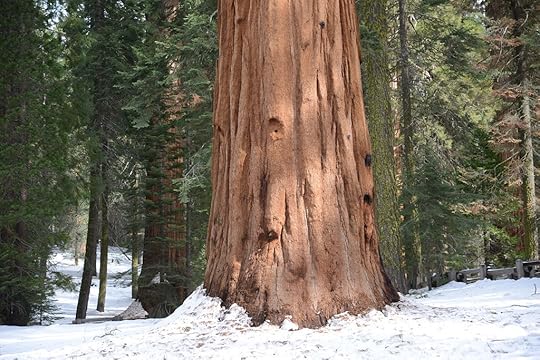

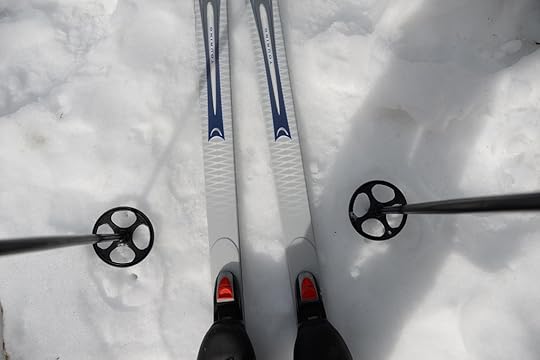

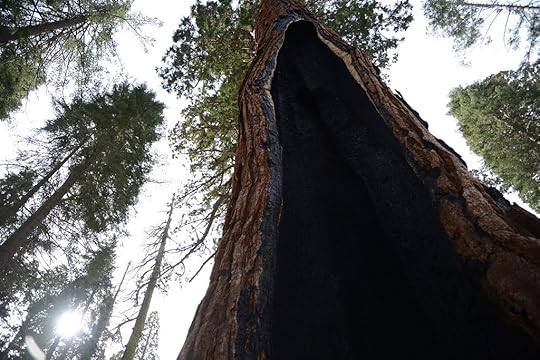
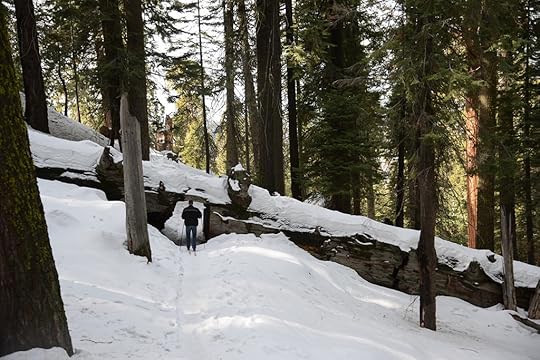

Ended up standing there by that burnt tree, kind of struck:
While the Maker of the Cosmos curled up in the amniotic waters of a womb, while the ancients of Crete were picking olives from the trees under a noonday sun, while the Chinese astronomers are watching a new star appearing in the east, in the constellation Capricorn, and increase in its rapid peak brightness by a factor of 10,000 to over one million —
While God incarnate is born barefoot and bald in a barn that smells like dung, while the insanity of the Creator of the Cosmos dwindles down to earth and one damp fist unfolds on the planet He Himself breathed into existence, while the air in a manger in Bethlehem tastes like blood and beast; like dank manure and mire and sweaty, salty prayers —
Come 30 AD, the Man God, He hung on a tree just by iron nails driven straight through the veins of the One who choreographs the lines of stars.
God’s back is rubbed raw by the bark of the cross, His heart ripped open by the snarl of the crowds; the Creator bleeds for the resurrection of His creation — and there’s this one tree, this sequoiadendron giganteum, reaching for the fresh air of the sun on the western slant of mountains on fire.
In the Western Sierra Nevadas, this one tree stood in the heat of the burn, in the searing blaze of the rising flame. And when the smoke cleared, 7000 feet up that mountain, that one wonder of that tree still stands an island of life in a charred desolation.
And at the foot of the standing Cross Tree in the East, at the foot of a Sequoia tree in the west, it’s like all the wind anywhere will always tell you:
Do not ever be afraid of ashes.
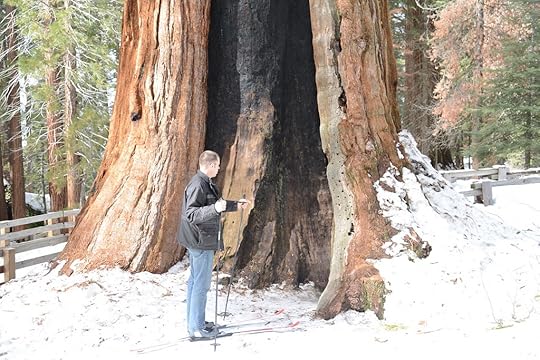
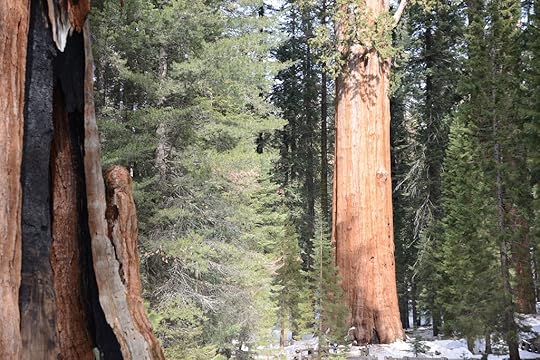



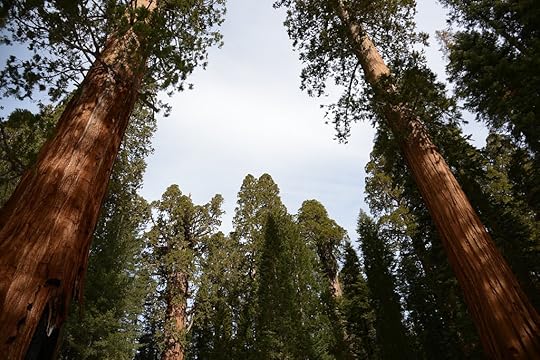
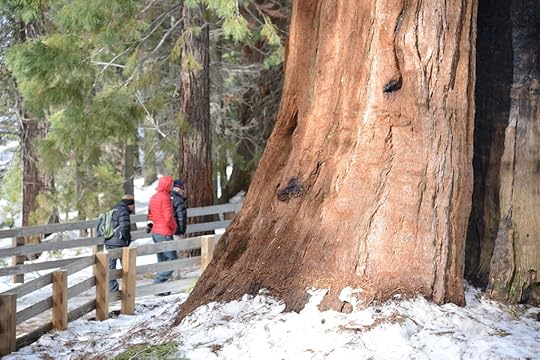
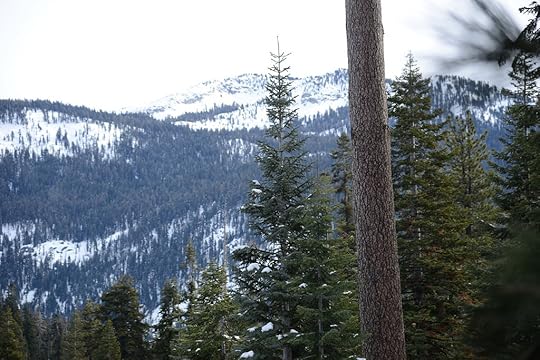
When Christopher Columbus ran into land on the curve of the earth in 1492, on the eastern coast of the North American Continent, on the western coast, this one sequoia finds itself over 1000 years old, having survived a fire every 10 years, having survived nearly 150 crackling infernos.
The bark of that tree under my hand — it had the thickest skin, bark that grows up to 24 inches thick, the thickest bark of any tree on earth — and every single fire it endures burn away it’s competition for sunlight, and it’s the fire that makes a fertilizer for the tree’s growth.
This fertilizer — otherwise known as ashes.
What seems like ashes in your life — can be the actual fertilizer that grows your life.
Souls grow most in soil made rich by ashes.
Fire makes a fertilizer for growth — and ashes can be the best soil for the best soul growth.
Do. not. ever. be. afraid. of. ashes.
Standing there with my hand on the largest living organism on earth, hand on a tree that’s inner rings are scarred with hundreds of fires and it grows like a reverberation in in your interior: do. not. ever. be. afraid. of. ashes.
And everything around me rings: C’mon. How do you have no fear of the flame?
The flame of the unexpected, the unwanted, the unnerving, that can make kindling of your life, that disaster, that diagnosis, that debacle that burns up your people, the burns down your dreams, that you blink and turn around and your life is ON FIRE.
All down the mountain side, the snow’s falling down around me and the massive sequoia giants, like all this papery, flaky mana coming straight down.
Once the people of God stood in a wilderness burning up with a scorching heat and they bear witness to this age: What seems like scarcity, may actually be abundance.
What seems like flaky ashes — may turn out to be abundant manna.
What seems like broken barrenness — may be the beginning of abundance.
Manna, that material that’s as flaky as ash, that fell down into the searing heat of the wilderness, bears witness to the overflowing generosity of God.
And the people of God say, “Manhue?” — Hebrew for “What is it?”
And some scholars suggest the word, manhue, is related to the Egyptian word that the Israelites carried out of slavery, manna being related to the Egyptian word meaning GIFT.
What you can’t explain in your life — may be explained as being a gift.
The question marks in your life — are gifts for your life.
Question marks can be gifts.
The mysteries in our life, the what is it things — they are meant to be a gift to sustain us.
Eat the mystery of your manna — the thing you do not understand, the mysteries of life, the ash-like material that make no sense to us— and discover it is a gift of abundant life.
I sat down in the snow at the foot of an unwavering Sequoia tree and those three lines keep coming to me like a song:
Wish for the past and you drink poison. Worry about the future and you eat fire. Stay in this moment and you eat the mana needed for now.
Mana, that fine, flaky like ash kind of food, that drifts down from above, burns up the lie of scarcity.
Jesus came to touch those suffering from the scars of scarcity — the scarcity of wellness, the scarcity of wealth, the scarcity of worth, the scarcity of worship — and He heals them with the generosity of abundance.
Hadn’t Jesus’ own disciples suffered from scarcity: “”How can you feed these people with bread in the desert?” (Mark 8:4).
But Jesus’s mind is made of the generosity of abundance, and He stands in the burning heat and asks the question of abundance: (“How many loaves do you have?” (8:5). They answer: “Seven.”
This is enough.
What you have in your hand, God can always make into enough.
What Moses had in his hand, God made into enough to part the Red Sea.
What the poor woman in the temple had in her hand, God made that mite to be mighty enough.
What the boy with a few loaves had in hand, God made into leftover loaves in overflowing baskets.
What ashes from your hope and dreams that you still have in your hand, God will make into abundance that will be too much to hold in your hands.
This is the theology of enough — the theology of abundance.
He will leave none of your ashes alone until He alone makes abundance out of them.
And only those who believe in and live out the theology of enough can live out Sabbath rest.
The rest who don’t believe God will give enough bread, they have to hustle every day of their lives.
Those who can’t rest in the rest of God, who can’t rest in the mystery of abundance, live Pharaoh-like lives, Pharaoh who never took a day off, who kept striving to get more and more and they never slow down because they are duped by the lie of scarcity that they won’t ever have enough and God alone is never enough.
There is none like God — and He needs none of our relentless hustle.
How can we in the richest nations who have the most, still covet the most?
How can we live in the generosity of abundance — and yet live out the ideology of scarcity? And how can the poor, suffering from scarcity — most choose to live out the generosity of abundance?
One of the central problems of our lives and our times and our world is that we say that He gives us the good news of the generosity of abundance — and yet we suffer from the disease of scarcity.
This is disease that makes us angry, despairing, greedy and unneighborly.
This is the tension of our lives and one of the defining issues framing this moment in history.
Are we controlled by fear, driven for more, frantic for enough, suffering from scarcity — or is our present tense devoid of that tension — so that we are fully present to the presence of a generously abundant God?
What if we all realized that the real issue facing us in every single aspect of our lives was simply, powerfully this:
Can the generosity of God’s abundance be trusted in the face of seeming scarcity?
Could we look at the ashes in our churches, in our marriages, in our hopes, in our culture — and believe that in the midst of the ashes of what looks burned down — God will raise up a beautiful abundance?
How would it change our families, our communities, our vision, our politics, our prayers, our people —- if anywhere we saw the suffering of scarcity, we believed God’s good news of the generosity of abundance?
What if anywhere we saw ashes — we believed God for abundance?
Because this is the startling truth: The suffering of scarcity — the suffering of a scarcity mentality in our homes, a scarcity mentality in our world view, a scarcity mentality in our churches, a scarcity mentality in our policies — the suffering of scarcity always leads to death.
But the people of God get to bring the witness of abundant manna.

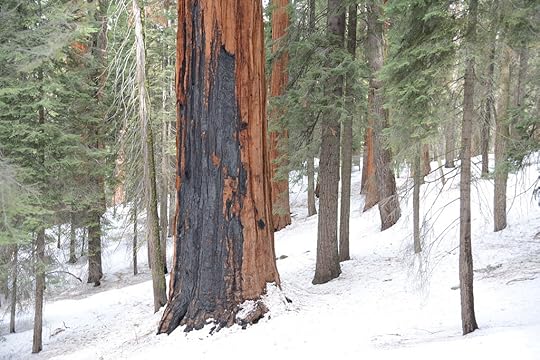
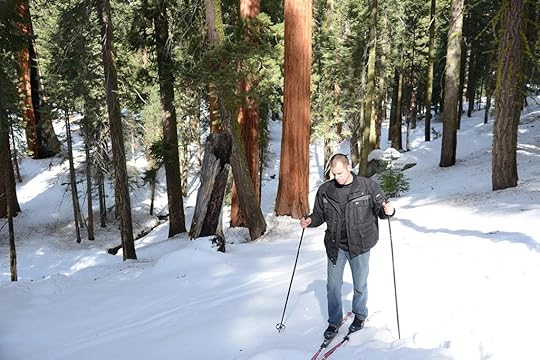
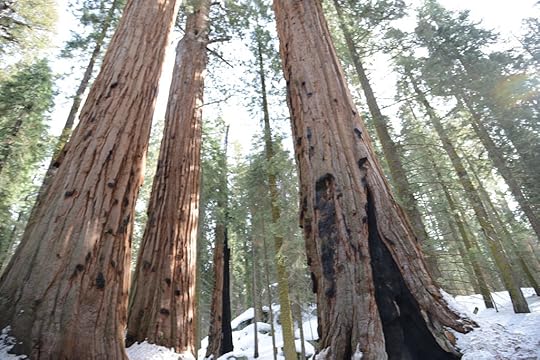

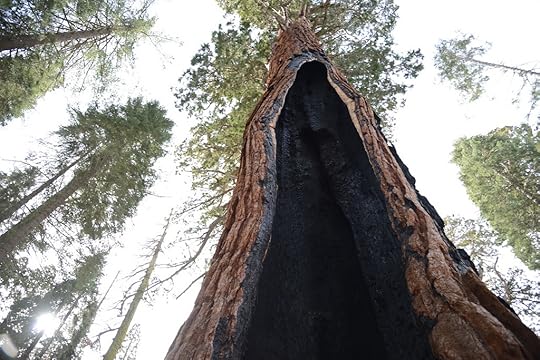
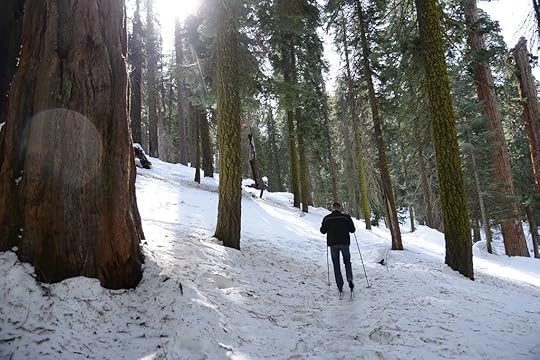
When we can relax, when we can trust, when we believe there is enough to be broken and given like bread to the needy, when we can live given, as He has abundantly given to us — then we are living into the generosity of abundance.
There is a more abundant, excellent bread than striving materialism, than fear-driven walls and fences and lines, than a mentality of NOT-ENOUGH.
It is the Bread of Life and you don’t have to bake it or make it or fake it.
Jesus is the Bread of Life and though He was rich, “yet for your sakes He became poor, that by his poverty you might become rich.”
Culture and economics and politicians may say it takes money to make money?
But Jesus’s life proves it: it takes the mystery of poverty to produce the generosity of abundance.
It takes what looks like ashes to make abundance.
It takes what looks like brokenness to make abundance.
Jesus broke and gave Himself to enrich others, and we are called to live broken and given — there is no other way to live rich lives.
That broken way — is His way “and [His] paths drip with abundance.” Ps. 65:11
That word in the Hebrew for abundance there in Ps. 65:11?
That word for abundance is deshen — and while it means abundant provision, fatness — that word for abundance, deshen, also has another meaning: ASHES.
Ashes — referring to the remains of the sacrifices on the altar where the ‘ashes’ were composed of the charred remains mixed with the animal’s fat.
Hear that: The same Hebrew word that means abundance — also means ashes.
Abundance rises from ashes.
What looks like your ashes — is the beginning of God’s abundance.
What seems like the discouraging ashes of your hopes — can be the nurturing ashes of your growth.
Do not ever be afraid of ashes.
They can try to burn down your hope, torch your courage, scorch your endurance, and roast your resolve — but ashes are never the last line of any of God’s stories. Abundance is.
“You don’t have to be good enough — Because He is grace abundantly enough.
You don’t have to be strong enough — Because He is abundantly Savior enough.
You don’t have to be sure enough — Because He is abundantly certain enough.” ~The Broken Way
Abundance, not ashes, are the last line of every story of God.
I witnessed a baby breathe in this deepest sleep today. I can testify how an old man said sorry today and he meant it, you could see it in his eyes.
I watched a woman wipe her tears today and say she was going to go ahead and get her hopes up — because she didn’t see the point of staying down.
And I heard this afternoon that the country church around the corner was saved, the way faith always saves.
Heard that someone said that ashes caught on the spring wind, and you could see it to the west of the steeple, all up through the spruce trees, the sky filling with all these sparking, glowing ambers.
Like the rising of abundant, undeniable glory.

April 4, 2017
Help for Parents Who Want to Give Up: 10 Keys to Raising Kids
When I was an oblivious 16, I met this soccer mama who had it painted on her Keds:
Shoe #1: These 2 feet run
Shoe #2: After my 3 sons.
We ended up with 4.
Four boys. Two girls and four boys, who swelled me out like a melon and nobody tells mothers that: Once labor starts, it never ends.
Four boys that made mountains of laundry like they were tectonic plates, who furiously ravaged the fridge 24/7 and left a never-ending stream of empty plates. A quad of explosive testosterone, a quartet of dirt and wrestling and loud and dreams and books and mess and sweat and inventions.
And, frankly, there were a lot of days I wanted to have it wired up in neon blinking lights on a t-shirt:
These two arms
pull out a lot of this mother’s hair
over her 4 sons.
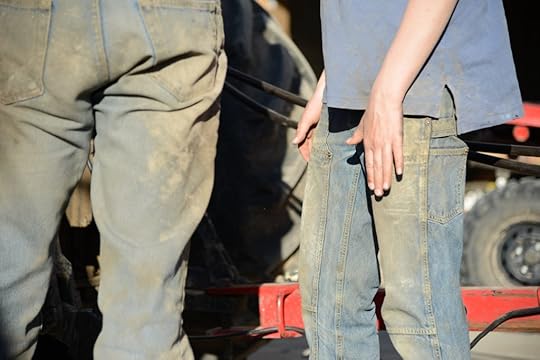

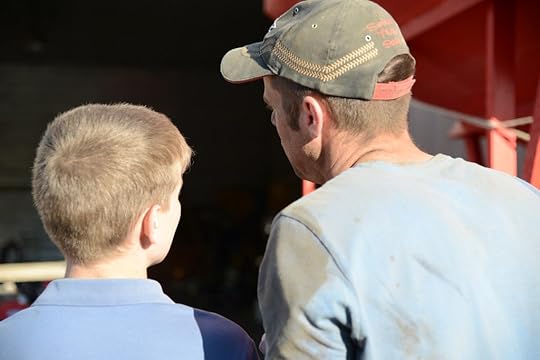
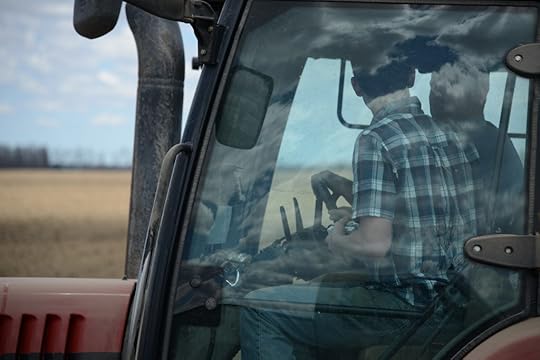
The one boy that was harder than all the other 5 kids all put together?
The one who made me think he was either headed to delinquency hall, or I was literally headed to an insane asylum, who made me lock myself in the mudroom, slink to the floor and weep a primal grief? At least three times a week?
The kid’s on scholarship. He bought his own house the week before his 18th birthday. That he rents out to 7 other roomates.
He won a grant this past term for his pitch of a new agricultural tech start up. At 19, he has his own team of engineers. A handful of times every week, he messages me: “Love you, Mom. You’re doing great.” He sponsors more than a dozen kids through Compassion. He’s one of my very best friends. One of my very favourite people in the whole wide world. I never want conversations with him to end.
A road always looks one way — until it makes a u-turn.
They don’t tell you that either:
The only way to raise kids — is by never giving up.
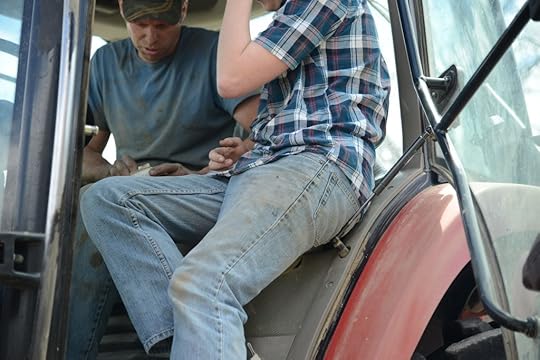
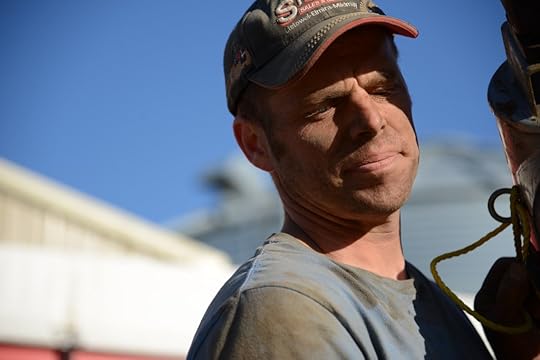
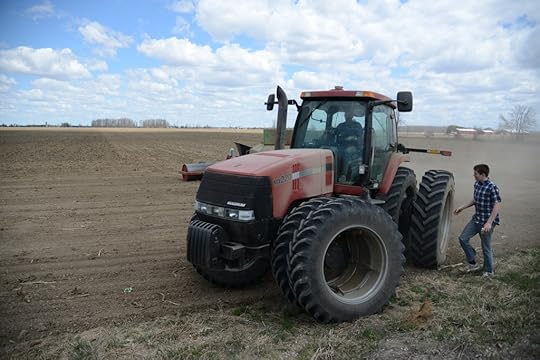
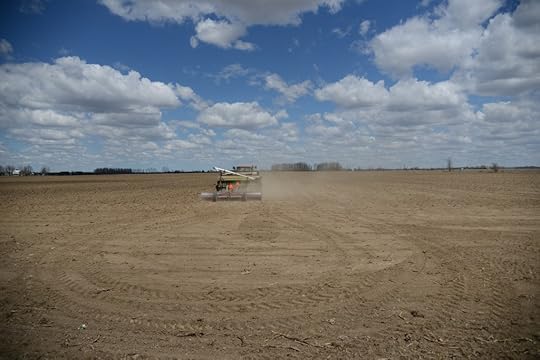
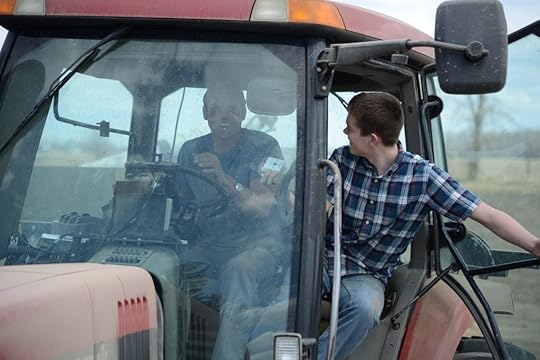
His kid brother, who shows up in the tractor seat this May, he’d only scowled and snarled at us.
For about two years straight.
I had failed that kid like the Hindenberg. Crashed and burned of epic proportions. Daily. Ranted when I should have bit my tongue. Hassled when I should have held my peace. Turns out that: Whenever you want to light into someone, is exactly when you should lighten up.
Instead of giving someone a piece of your mind, it turns out far better if you give them a piece of your heart.
I wish I had done that. I wish someone had told me that. There’s support groups for moms of preschoolers, but where’s triage for the moms of teenagers? #MOTS The older our kids become, the greater our isolation can become, because while mothers can instagram and commiserate together over the Terrible Twos — but mothers struggling through a stretch of terrible teens can suffer alone.
Then that same homeschool kid scored in the 99.7 percentile on his ACT.
Was offered a scholarship to his program of choice the week of his 17th birthday.
In mathematical physics. Won the university’s Provincial Roboticon Competition with the design, building and coding of his own robot. Designed and built his own chipboard.
Came home every weekend, hugged his dad and I, laughed loud and made bacon and eggs for the whole crew on Saturday mornings after barn chores. Got ready every Sunday morning with his older brother for gathering as a church around the Bread and the Cup. He wears bowties. Sometimes I just have to lean in a doorway and watch him. He’s become more than I ever dreamed.
Redemption is the papery ash that’s falling, turning and uplifting as sparks of pure glory.
This happens. We don’t deserve this and redemption still happens.
And it begs us to never stop looking for it, to always stop and witness it.
* * *
So that kid shows up in the yard the day after his last university exam, asks his dad how he can help?
Yeah, he ends up in a tractor seat — grinning a mile wide and nodding at us.
Ends up stuck at 2 a.m.
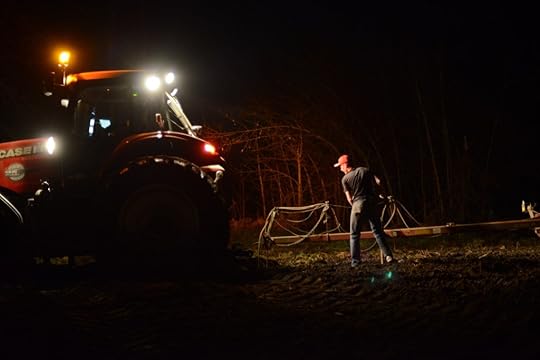
Cultivator caught a bit of damp dirt at the edge of the woods.
He calls home, looking for his kid brother.
I’m still up, making up something warm for that 14-year-old kid brother of his who’s just dragged in from the Hurst farm and planting 200 acres of soybeans on his own. Both boys have have been up since 4 am yesterday.
Feeding hogs. Washing down barns. Hooking cultivators on to tractors. Cultivating up a seed bed for hundreds of acres for those seeds.
When a family works shoulder to shoulder through something, they find they can take on just about anything.
Their Dad’s still out there. Still out there going in the field behind the barn, out there underneath a milk moon, on an open tractor, eating dirt up and down the field, trying to get the last of those corn seeds into the ground.
When I took a warm bowl out to the good man, his hands were bone cold.
Levi leaves his steaming plate on the table, heads out to the shed to grab a chain, start up the tractor again, haul over to the Martin farm to pull his big brother out of the field in the middle of the night.
This old ma of theirs, I drive the pick-up tuck out to check on our boys. Stand in the dark and nod them on.
Boy-men. Brothers. The Redeemed and the Rescued and the Remade. Gittin’ ‘er done with their dad. Doing whatever it takes to keep the other one going, get this crop in the ground and get this family through — because, for all our stumbling and wandering, that’s what families do.
Levi and Joshua hook that chain onto a tractor axle in the dark. Their bass voices echo across the field. When did I turn and they grow up like this and how did this miracle of grace bond us all like this?
People can say what they want about teenagers & boys these days. Say what they want about this next generation, say that kids can’t change, that we’re all going to pot here in a hand basket. But I just want to whisper:
There’s a whole generation of young men who are becoming good men.
There are young men who are of great worth, not because they do good yet, but because they are made in the image of a Good and great God — and that alone makes them great young men.
There are young men who need time. Oak trees don’t happen over night. Growing in grace and wisdom and stature isn’t an immediate download — it happens the way a tree grows up: over decades.
There’s a reason why children begin as seeds. It’s okay — it’s okay —- that growth and change take time — it’s supposed to.
There are good young men who simply need someone to tell them that they are that —- who need someone to tell them a dozen times a day, “You’re good at working hard and loving large. You were made for this.”
There are good young men out there who need to be unearthed from low expectations, and made over by relentless grace, and strengthened with daily doses of iron: the nails of service and the Cross of Christ.
There are good young men who need someone to show them they are trustworthy by entrusting them with worthy work, who take the time to inspect their work so they know what to expect, who give them confidence to to do hard things by giving them hard things to do.
Levi hauls his brother out of the mire.
I memorize the boys’ silhouettes in the lunar light.
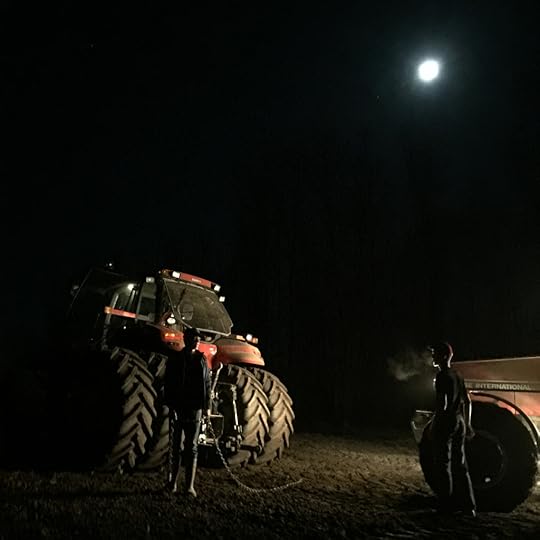
The two of them stand in a shaft of moon, farm caps pulled low, deciding who will finish up this field now at 3 a.m., who will get up when the 4 a.m. alarm goes in an hour for the barn again and those hungry hogs.
It doesn’t matter if they’ve both been up 22 hours now. It doesn’t matter that there are hours ahead of them and Sunday and rain coming and only so much time to get these seeds into the ground. They’re both bent and bound to not quit now.
Don’t quit now.
There’s a whole generation of the hardest boys who can become the greatest men.
There’s a whole generation of young men who can learn to go till it’s done, work hard days till it’s finished, give each other a hand so no one get’s left behind.
There’s a whole generation of young men who will rise up if we raise our expectations, who can turn over new leaves because we never stop believing in them, who can do hard things because we never give up on them, no matter how hard it gets.
When you teach a kid how to work hard, you teach him how to work through whatever’s hard.
Yeah —- there’s more than just a few good young men.
There’s a whole world of them. Headlines could tout them. Facebook streams could flood with them and Instagram could capture them and Twitter could trend with our future men: #GoodYoungMen. And a whole generation of mothers and fathers could do the hallowed work of raising them up.
Because a country needs them, a hurting world needs them, an eternity needs them, and the raising up of #GoodYoungMen is no small thing — it’s a hard and holy thing.
When Levi catches a glance of a photo from the field, he leans in over the outlines by the tractors.
“That’s Dad?” I shake my head.
“Oh, that’s Dad?” He points to the other silhouette in his peaked farm hat. “Wait — Dad was planting behind the barn that night,” he straightens up, confused.
“It’s you.” Something’s burning in my throat.
“It’s you and Joshua.”
Levi leans in again over the picture. “Really? We both look like Dad. The way Josh and I are standing. The way we’re walking.”
His mother nods, swallows around this burning ember.
The feet of all our sons run like all the good men ahead of them —
a crop of good young men planted by their Father, for a harvest worth all of a mother’s worn and faithful grace.
Related: After Steubenville: 25 Things Our Sons need to know about Manhood
How to Be the Parent You Want to Be: 40 Things Every Child Must Know Before They Leave Home

April 3, 2017
What You Lack is Not Who You Are
A little over six years ago, I met another Ann without the e, and our paths overlapped in the blazing colors of an Illinois autumn, where we talked about the weighty gift that it is to be those who midwife words into stories. What I didn’t know then was that Ann Swindell was in the middle of waiting years—waiting for healing, waiting for clarity, waiting for direction. Her story has now been poured into her first book, Still Waiting, and it is one of learning how to trust God when he doesn’t answer our prayers the way that we want him to. It’s a grace to welcome this fellow Ann to the farm’s front porch today…
By the time I was twenty years old, I had struggled with trichotillomania—a hair-pulling condition—for nearly a decade.
I pulled my eyelashes and eyebrows out every day, even though I hated it and even though I was desperate to quit.
There’s no cure for trichotillomania — and I had no end in sight.
Instead, I found myself waiting—waiting for God to heal me when I couldn’t heal myself.
If you’ve ever waited for something you’ve dearly wanted—healing, a relationship, emotional breakthrough, financial security—you know the vulnerability and tenderness that waiting brings.
And if you live in the waiting long enough, you also know how waiting can impact your identity.
I began to label myself as someone who was immensely broken. Because not only did I lack eyelashes and eyebrows, I also lacked the ability to fix myself.
I defined myself by what I lacked.

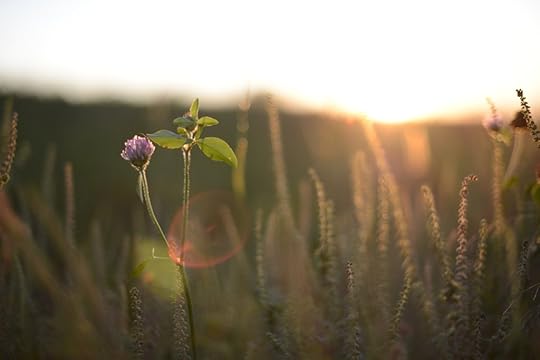
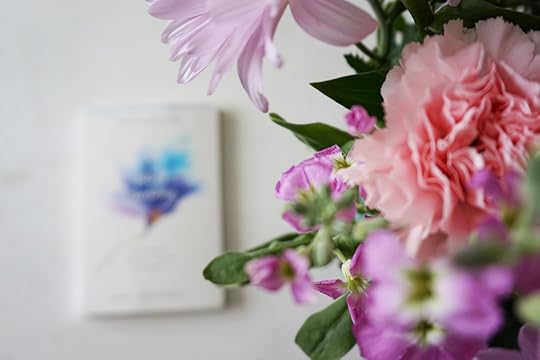
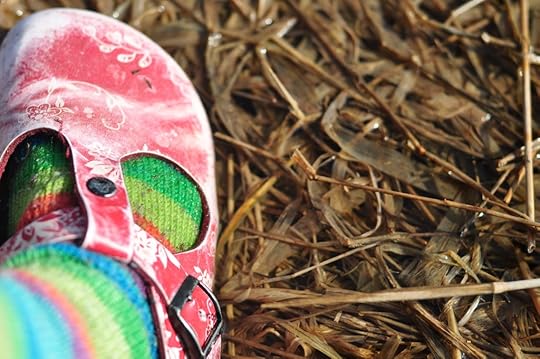

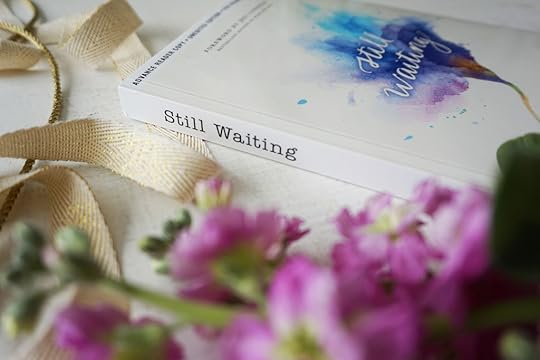



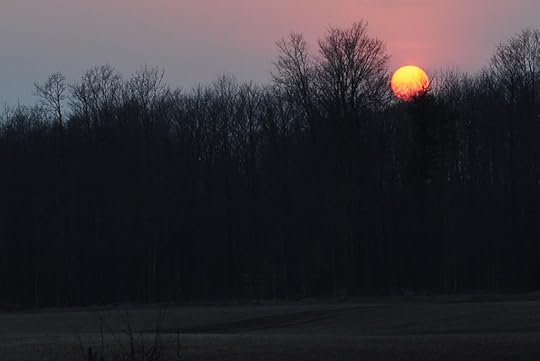
It may sound strange to define yourself by what you lack — rather than by what you have.
But the woman who shuts her jaws against food because she lacks the number she wants on the scale will understand.
The woman who looks longingly at the children on the playground when her own womb lacks a baby—she will understand.
The single woman who feels pangs of envy and regret every time she sees another friend announce an engagement will understand.
It doesn’t matter how big or small our lack seems to others—in our own hearts, that lack can loom large.
We all have lenses of lack that we see ourselves through.
I saw myself through the lens of trichotillomania, through the lens of lacking both control and beauty. Maybe you see yourself through the lens of some perceived failure—of not being smart enough, rich enough, good enough, happy enough, funny enough, or ________ enough.
When we start defining ourselves by what we lack, we obsess about it. We yearn for it, desire it above everything else.
We play the mental game:
What would I give in return for a better job?
What would I give in return for a size-four waist?
What would I give in return for financial security?
For a prettier face? For a husband? For a happy marriage? For an easier life?
What would I give in return for _______?
I once found myself incredulous that Esau would exchange his birthright for a mere bowl of stew. But I don’t judge him so harshly anymore. When we experience that ravenous hunger for the one thing we so deeply desire, we all find ourselves tempted to give anything in exchange for it, because we hate being less than whole.
We all know, in these shattered places of our souls, that we are made for wholeness and perfection. And those places where we find ourselves lacking remind us of how weak we really are.
They remind us of our neediness.
But the gentle truth is that if there’s one identifying mark of the Christian, it is the mark of neediness.
As followers of Jesus, we have already acknowledged our lack and our neediness in the deepest of ways—our need for a Savior, our need for salvation.
We can’t make up what we lack: we can’t help ourselves, fix ourselves, save ourselves. Only in Christ are we made whole.
And while Christ has given us wholeness and redemption, the tension is that we don’t live into it fully, at least not yet. We still feel what we lack acutely, and many of us let our lack identify us—name us, mark us, brand us, slither into our worth and value.
When that happens, we can fall prey to lies about who we are. These lies say we are worthless, less than, unlovable. They empty us of hope.
But here is the best news for us lacking, weak, needy souls: Jesus has already given us our true identity, and it is not based in what we lack. It is based in who He is.
We are His beloved. We are loved.
He doesn’t name me by my weakness, my sin, my lack.
He doesn’t name you by your weakness, your sin, your lack.
Instead, He names us by what He has done for us. He names us by how He sees and knows us. He calls us His masterpiece; He calls us His children; He calls us friends; He calls us accepted.
The truth is that trichotillomania has never defined me before God. No matter how much it felt like it did, my lack didn’t consume my identity.
It’s the same for you, for all of us, for every single one of us.
The sin and suffering that you struggle with today—your lack and neediness—they don’t define you or consume your identity either.
God doesn’t look at you and see what you lack.
He looks at you and sees His child who has been loved, accepted, and redeemed.
He looks at you and sees you whole —
though the eyes of His unchanging and perfect love.
Ann Swindell is an author and speaker who lives in the flat plains of the Midwest with her husband and daughter. She shares her words and life at www.annswindell.com.
Most of us know what it’s like to wait for God to change our circumstances. But, whether we’re waiting for physical healing, emotional breakthrough, or better relationships, waiting is something we usually try to avoid. Why? Because waiting is painful and hard. The truth is, it’s also inevitable. If you know the tenderness and ache of waiting, Ann’s newest book, Still Waiting, is going to be a gift to your soul. Ann explores the depths of why God wants us to wait by chronicling her own compelling story of waiting for healing from an incurable condition. She offers a vibrant retelling of the biblical account of the Bleeding Woman that parallels her story―and yours, too.
No matter what you’re walking through, Still Waiting is a feast for anyone whose heart is struggling to hope.
[ Our humble thanks to Tyndale for their partnership in today’s devotion ]

April 1, 2017
Links for 2017-03-31 [del.icio.us]
Our #1 Best-Selling Drone--Meet the Dark Night of the Sky!

March 31, 2017
When You’re Trying to Love Better: What Nobody Tells You About Love Being a Verb
They don’t tell you this — that Love is only known by the fools.
You just feel it sometimes, the ache of love, of all the things, right there underneath your breastbone.
The end of March, I stop everything, just before April shows up on the 1st with all her foolishness, and I watch a 92-year-old man lean over a casket and hold his face in his gnarled wrinkly hands and weep over the stiff, frail body of his wife.
I can’t turn my eyes away from his hands.
“The best use of your hands is always love.
The best way to say you love is always time.
The best time to love is always now.” ~
(The Broken Way)
He’d brought her dinner the last several years, washed her hair with those hands, turned back her sheets and spooned close to her every night for a span of seventy years.






When they soundlessly roll her casket out of the church, his son pushes his creaking wheelchair behind her in that oak box.
And the old man bends into this sobbing grief that fills the sanctuary, and all of the farmers in their uncomfortable ties and all us farmers’s wives in our pressed black skirts, we bow our heads and listen to his unashamed grief.
This is the sound of a fool who gave his heart away to one woman for a stretch of 72 vowed years.
Is this what a heart transplant feels like, when a lifetime of love turns out to give your heart to someone else?
There wasn’t one of us standing there yesterday who didn’t know it: His heart’s inside that casket, inside of her.
“Blessed are those who are sad, who mourn, who feel the loss of what they love — because they will be held by the One who loves them. There is a strange and aching happiness only the hurting know — for they shall be held.” (The Broken Way)
It’s God who gives us our first heart transplant, who gives us a heart of flesh — and then we keep giving our hearts away, bits of us transplanted out of our aloneness and into the hollow spaces of others.
Not one of us said it then, that —
Love is for the fools and the givers, for the pourers who tip their hearts right over, for the riskers who lay their whole hearts down on tables without a wall or a shield in sight and feel afraid but give their vulnerable heart anyway.
The end of March, right after I left Mrs. B’s funeral, right after I feel in my chest the ache of Mr. B’s heart transplant, I stop, just before April shows up on the 1st with all her foolishness, and I watch a man say goodbye to his girl at the airport, watch how she buries her head into his offered shoulder, how he strokes back her hair, how she mouths into his neck — “I don’t want to go.”
He’d walked her to class, given her his coat, his arm, a necklace, the shirt off his own back — bits of his heart. She’d given him her a ready smile, an always listening ear, always the meeting of her eyes.
And there, before she steps into that airport security line, his arm around her waist pulls her in, and he looks down at the floor, looks for words, tries to fight back his heart giving way all liquid:
“You … Just…. Just — I have no other place to go… you are my heart, you are my home.”
He can’t stop his chin from trembling. Our heart’s true home is never inside of us — but inside of someone else.
Inside of Him, inside of people.
We are always lost until our heart makes it home inside of someone else.
Our lives are unfulfilling if we only let our hearts fill us — instead of filling other people’s broken places.
Fulfilling lives happen when we give our hearts to fill other people’s empty spaces.
When he said to her, “You — you are my heart, you are my home” —- she looked up at him, looked him in the eye, and her heart leaked down her cheek in this singular gleaming tear.
“The art of living is believing there is enough love in you, that you are loved enough by Him, to be made into love to give.” ~ (The Broken Way)
The end of March, I stop, after they drive away with Mrs. B’s casket with Mr. B’s heart transplanted into her after seventy years of loving her, after the planes fly with hearts, hearts making their home outside of the wavers and the weepers, and just before April shows up on the 1st with all her foolishness.
I stop in the early evening in a doorway, watch our youngest boy in a deep sleep on the couch.
We shake his shoulders but he won’t wake, won’t open his eyes.
“Test his blood,” I murmur the words, gently shaking the pale white boy, his sister looking for his blood tester.












Another sister runs to the barn, calls for the Farmer to come.
When we prick his finger, press the tip for drops of blood, dip a test strip into the pooling scarlet, there’s a circle of us waiting for the number to pop up on the tester’s screen, to tell us what runs through the veins of our diabetic boy.
The startlingly low number that shocks the screen in his sister’s hand sends us all into a desperate whirl — a brother lifts the boy, a sister wipes off the sweat beading, the Farmer gets him to open his mouth, and we try to get him to drink juice, to eat an emergency roll of candy, before he slips into a hypoglycemic coma.
And I look around at us. This is us.
Us given to each other.
The heart’s true home is addressing the brokenness of other hearts.
When the boy starts to come to, his dad, still in barn clothes, sits with him, steadying hand on his shoulder, eyes reassuring his boy, waiting for color return to the boy’s cheeks.
His older sister gathers up his diabetic supplies, returns everything to his bag. His brother heads back out to the barn and birthing sows and all our unfinished chores.
I scoop up the baby, change her sagging diaper, smooth back her black hair, cup her grinning face, plant a row of kisses across her forehead. Answer a text from our oldest son who couldn’t find a bed in a hostel last night in Florence, so he pulled on every piece of clothing he had in his backpack, slept on the cold street outside the locked airport, waiting for his 6:30 am flight out.
This is us being stretched thin and our lives become thin places to see the hand of God and when our hearts find its home outside of ourselves, our hearts rest in Him.
Yes, sure, they tell you love is a choice. They go around telling you that love is a verb — but no one tells you exactly what verb that precisely is.
You could look around you and think Love is a verb and maybe that looks like:
Love wants?
Love controls?
Love demands?
Love keeps score?
Love self-focuses?
Love manipulates?
Love self-protects?
Someone should tell us exactly what verb love is.
Love is a verb — and that verb is givenness.
Love is givenness.
God is love and He gets to define love:
For God so loved the world —- that He gave.
That’s what love is:
Love gives. There is no other way to express love apart from givenness. The essence of love is living given.
Giving, not getting, is the way.”
Love gives.
Love gives its life for another life — that is the definitive proof of love.
Love is not that we get to feel something — but that we give ourselves to someone.






The end of March, I stop, before April walks in with everyone acting like fools at the beginning, I stop and am hushed by Christ carrying the cross.
Love always reaches out — so if love isn’t shaped like a Cross — it isn’t really love.
Love self-gives — not self-focuses .
Mr. B had loved her and a casket would never change that. Give away your heart and you transplant your heart into eternity.
The Farmer helps our boy with diabetes to his feet. I witness how the son looks over at his dad, how his dad smiles.
A plane is flying through night, into the sun, one man’s heart at home in his girl.
And at the end of every single day, my friend, Mei, she, without fail, asks me two questions, that answers the meaning to being, to everything, that are forming my heart:
“How did you give thanks today? And how did you live given?”
Love is a verb and that verb is give — and the most powerful word in the world is given and love gives thanks and love lives given.
I know no other way to the abundant life… because this is the only way Jesus lived.
Only the life that is given — gives any joy.
Only the life that is surrendered — wins joy.
Only the life that you lose — wins the life you want to find.
At the end of March, I stop and read that there’s a comet that will fall across the sky on April Fools’ Day, making its closest pass to earth ever on record.
That one blazing comet will fall close over our farm boy with his bag full of insulin needles, will fall over Mr. B hunched over the memories of Mrs. B carrying his transplanted heart into eternity, over a plane winging toward the dawn of home and open arms.
And all the loving fools could look up to the heavens and see this comet of light, this light given.
And there it is beating at the heart of the universe, beating like a steadying rhythm in all of us:
Live given, live given, live given.
Download your April G.I.F.T list & be part of the joy we all need?We could all together kinda start a little movement of Giving It Forward Today, choosing to #BeTheGIFT, living broken & given like bread out into a world down right hungry for love right now.
The Broken Way
Pick up your copy of The Broken Way — and break free.
Find all kinds of free tools at thebrokenway.com and download your April G.I.F.T list

March 30, 2017
When Your Worst Friend Is the Voice Inside Your Own Head
Okay, so I had no idea when I met Lisa-Jo for the first time seven years ago in the Dallas Airport that she would become like a Jonathan heart friend to me. No idea that we would share our lives day in and day out with each other, be there in a thousand little ways for each other every day, share our sofas and our tears and our prayers with each other, and if ever there was a woman I trust to write a book about friendship, it’s this woman who has lived daily real-life, everyday, Jonathan-friendship with me, for years. I’d be kinda lost without her. I’m just flat-out saying it: her book, Never Unfriended, this is The Ultimate Book on Friendship — and at the end of our lives, how we’ve learned to be a good friend, determines who shows up at our deathbeds. This is the stuff that really matters the very most — koinonia. I want to hand out these words, this book, to every woman I know. In a divided world, if ever there was a time for a book about the lasting and holy impact of friendship, that time is now. It’s the craziest, wildest grace to welcome Lisa-Jo to the farm’s front porch today…
I was woken up at 4:45 yesterday morning by my middle child announcing to the darkened room that he’d had a bad dream.
About Bigfoot. Again.
After we’d all taken the opportunity to go to the bathroom, have a sip of water, add an extra blanket to the bed, I found I couldn’t fall back asleep.
In that pre-dawn window of skies that are still dark and a subconscious that is sleepily awake, I wandered into the dangerous territory some of you might also find familiar.
That place between sleeping and waking when our thoughts spiral in on themselves and we re-play all the worst conversations and hardest misunderstandings of the last few days, weeks, months or years.
My brain doesn’t seem to be consistent when it comes to timelines.
It simply picks the most painful things that have happened to me and then puts them on a continuous loop in my head. It’s as awesome as it sounds.


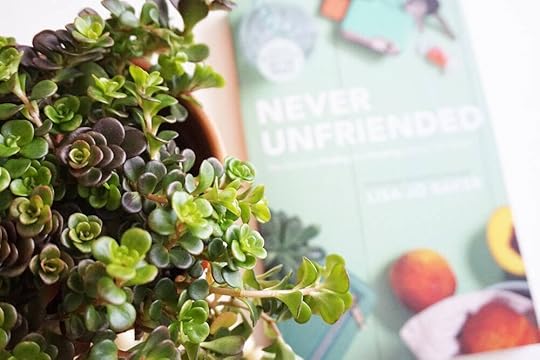
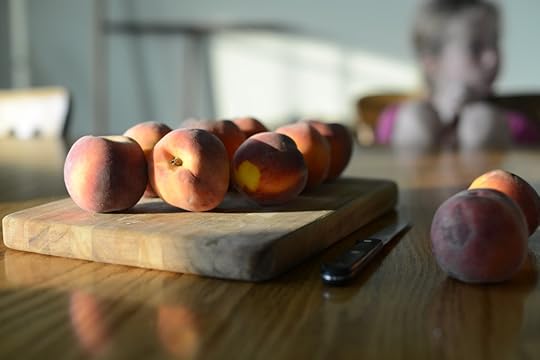
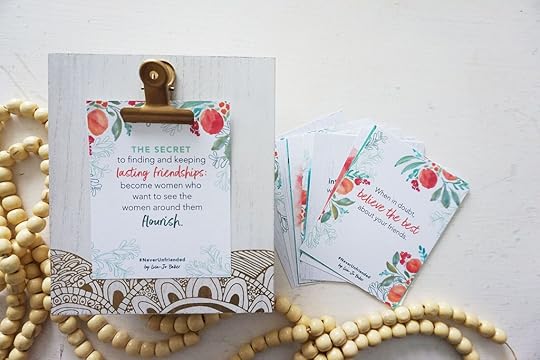


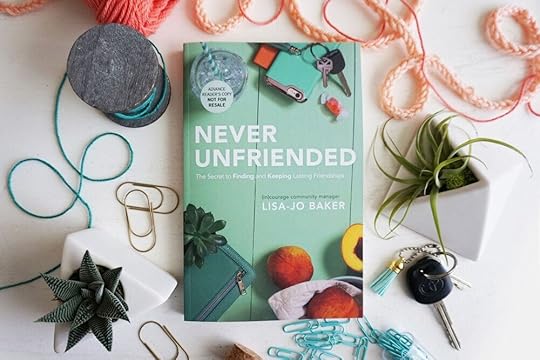
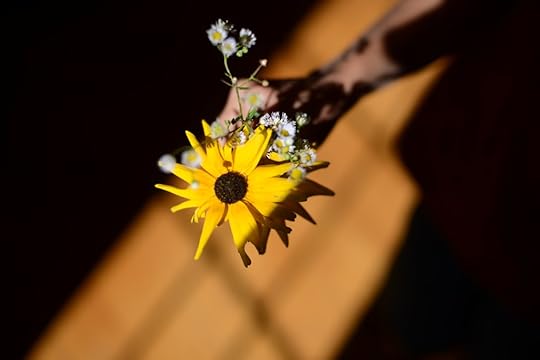
So there I was at nearly 5am lying in bed with gritted teeth and racing heart letting that terrible sense of having been wronged just well up in me and sweep through my body, as hot as the blood in my veins.
It’s a kind of spiritual torture.
How Satan will poke you and prod you with ugly thoughts that are out of context. And how he builds the whole grotesque caricature out of a small kernel of truth.
And then he’ll march that horrible collection of past hurts and warped memories across your mind at 5am like the Grim Reaper’s idea of counting sheep and you won’t be able to sleep as your heart starts to race and your sense of injustice boils over.
I used to lie immobile on my bed and let the dread spread through me from head to heart to feet.
I used to believe that I was a passive victim and that my thoughts were true and that I was entitled to the feelings that came with them.
But at 5am yesterday morning I knew that was a lie.
So I did the one thing I knew I could do – I got out of bed.
I simply stood up and walked out of the room and off the nauseating merry-go-round of angry thoughts that were battering me in the dark. I walked into the living room and sat down on the floor and felt the solid truth of the wooden planks beneath me, the chill in the air and the softness of the blanket I wrapped around me.
Because here’s the thing I’m finally learning — just because I think it, doesn’t make it true.
Every thought that comes through my mind does not have to be taken and trusted at face value.
I think we seriously and dangerously underestimate how much Satan hates relationship. How he despises friendship and all the ways it reflects the deep truth of God’s holy Trinity. And how eager he is to destroy that.
So as I sat wrapped up in a blanket, voicing my fears and then countering them out loud with the truth of Jesus, I could feel the tension and paranoia drain out of me.
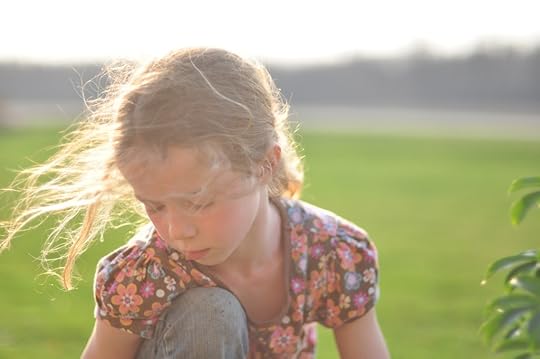

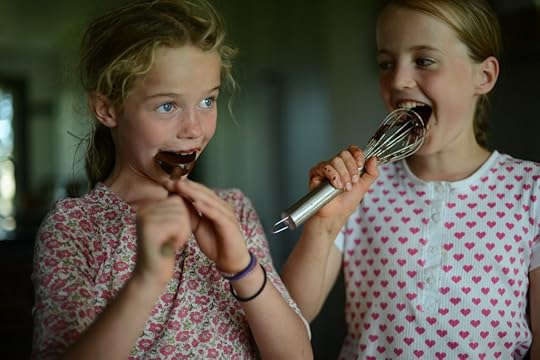
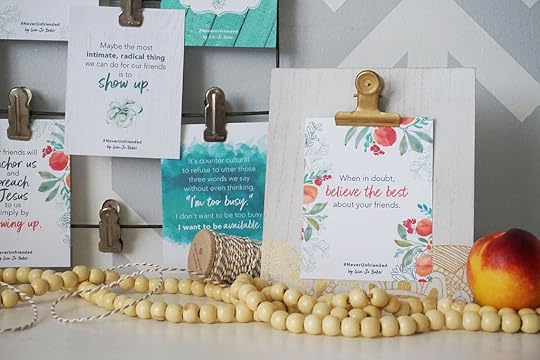

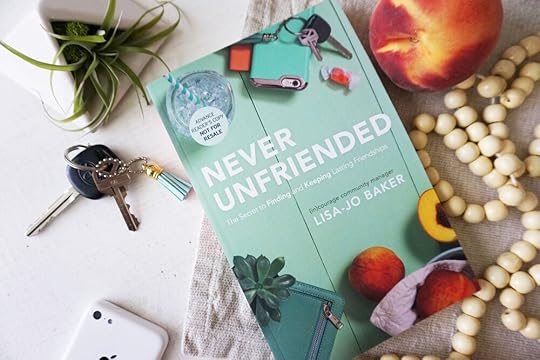

There is no fear in love. 1 John 4:18.
Love one another like Jesus has loved me. John 13:34.
Forgive seventy times seven. Matthew 18:22.
Be quick to listen, slow to speak and slow to become angry. James 1:19.
Until slowly, sitting in the dark with the sun starting to gently warm the edges of the window frame, the last bit of tension seeped out of me and I could walk myself back to bed.
My son was snoring in the same snuffled, familiar pattern as my husband and they’d left me a sliver of the mattress to climb back into. The bed was warm and the air felt safe again and I arrived dreamless into the light of day.
It’s not the first time I’ve had this kind of experience. The kind where you’re so wound up on your own sense of unfair treatment that you plot an entire come-back conversation in your head pointing out how right you are and how wrong they are. When something quietly blocks me from opening my mouth or hitting send.
That pause, that extra moment of deliberate hesitation before giving in to my almost manic desire to stand up for myself, can be the heartbeat between a friendship’s life and death.
There is a time to share our hurts with people, for sure. There is a time to gently offer our broken bits and pieces and let them know we’re wounded. But those tender conversations don’t start out with accusation.
If we want any chance of reconciliation then our conversations have to start with compassion.
A willingness to see the other point of view first, to love the other more than yourself.
At 4am, my fears and frustrations are not kind or gentle or others’ centered. They’re dictators that want to stomp a warpath right through the lives of the people who’ve hurt me. They’re not helpful.
They don’t want future. They don’t want friendship. They only want their own way.
And nowhere in Scripture are we given the promise of getting our own way.
Instead, all through Scripture the central theme from Adam to Noah to Abraham to Ruth to David to Jesus to the disciples to the nations to us is the theme of being redeemed by God for the singular purpose of becoming a witness of that same grace, mercy, and blessing to others.
God is wildly in love with even the people who might make us the craziest. The people who are difficult and the people who are grumpy and unhelpful and hard to understand. And sometimes those people are us.
So on those days, on the days I am struggling to feel love, grace, compassion or patience toward other humans, I ask God if I can borrow His feelings.
This is the God who has loved them deeper and longer and who knows their rough edges and hurt insides better than we ever will.
And this is the God who generously pours out His love and who never runs out and who is defined by compassion and speaks in grace and walked the walk all the way to the cross and down into the dark tomb and out into the light again.
With access to that kind of love, my own tired heart can be resurrected and keep opening up to keep loving while buried deeply and safely inside the shield of His own.
He will supply you with the feelings and He will do the work – in you and through you and for you so that you can be a blessing to the women around you far beyond what you ever could have hoped or imagined.
Starting with the voice inside your own head.
(THIS BOOK!!!!) Lisa-Jo Baker is convinced that in a world where women can unfriend each other with the swipe of a finger, choosing instead to believe the best about our friends — is a radical gift.
GET THIS LIFE-CHANGING BOOK: Starting with the example of the most faithful friend who ever lived—Jesus—her new book – Never Unfriended – is a step-by-step guide to friendships you can trust. It answers the questions that lurk under the surface of every friendship—What are we afraid of? What can’t we change? What can we change? And where do we start?—with personal stories and practical tips to help you make the friends, and be the friend, that lasts.
GET THIS BOOK BY THE ARMFULS AND HAND OUT TO ALL YOUR FRIENDS, ALL YOUR PEOPLE.
Because Lisa Jo would love to give everyone who pre-orders a copy of Never Unfriended a really AMAZING free gift!
GIFTS FOR YOU!
PreOrder Never Unfriended (currently less than $10!) before April 4th and you receive ALL these gifts:
A $22 clip frame with 37 art prints, including 12 quotes from Never Unfriended (US addresses only)
12 custom art prints with quotes from Never Unfriended (digital download)
The Never Unfriended Promise (digital download)
Immediate delivery of the first 5 chapters of Never Unfriended (digital download)So — for a $10 book that is GUARANTEED to change your friendships — you receive a $22 clip frame and the most gorgeous prints you’ll want to give to all your friends (I do!) Click here to preorder THE BEST FRIENDSHIP BOOK OF THE YEAR.
Click here to claim your free gifts — just enter your information into the “Redeem PreOrder” form.
[ Our humble thanks to B&H Publishing for their partnership in today’s devotion ]

March 28, 2017
Go Ahead: Why You Can Give Up on the Goal of a Beautiful Life
“I wanna buy something.”
That’s what the woman tells me. You can see that look in her eyes, looking for something lovely.
Something new and shiny and lovely, that catches the light in it’s own way.
Sometimes we want to possess lovely things — because we don’t know what love is.
“Something —- beautiful. I want something really beautiful.”
Maybe, you know — like a nicer house?
The kind of house to come home to, that looks like the amazing that is Joanna and Chip whipped it up, the kind that gets pinned as the pinnacle of Pinterest, that has soaring windows and climbing roses.
Or a thatched roof and hobbit doors and a clawfoot tub.
Or how about buying a silky new blouse? Slimming. Shimmering — just a bit.
Draping across the shoulders to make her look like a rising, like an unexpected super nova that stops the unsuspecting dead in their slack-jawed tracks. Just a bit.


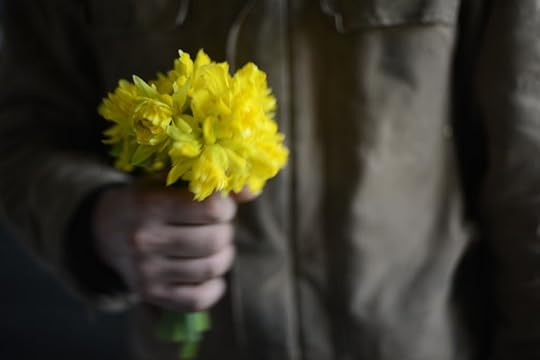
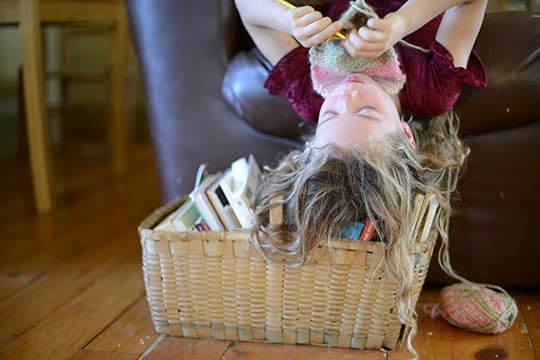

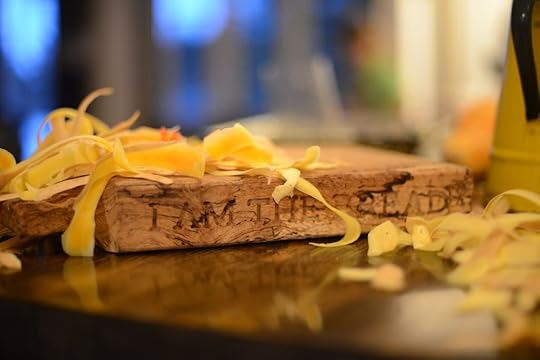

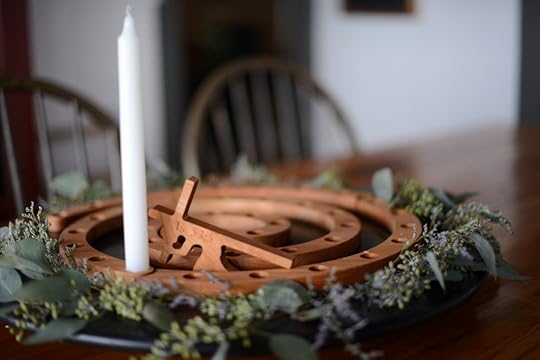


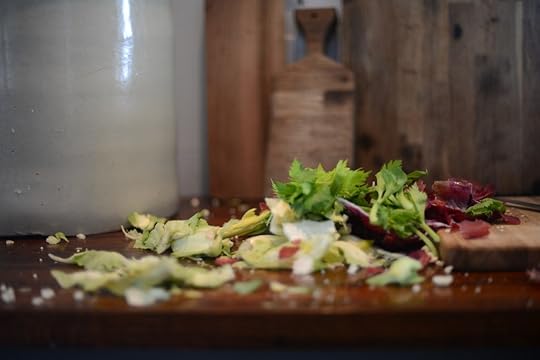
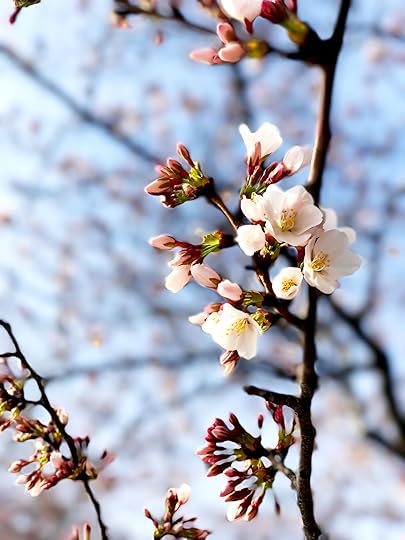

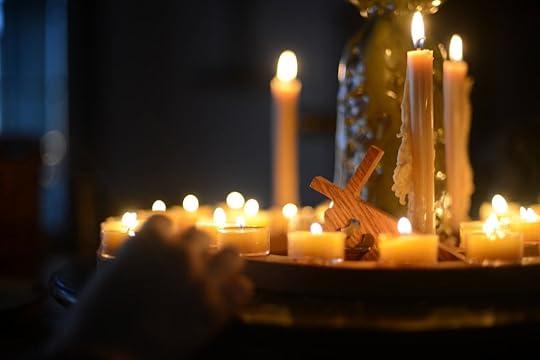
She could click through a dozen rabbit-hole sites, she could order a bit here, a bit there, and go ahead and fill a closet full of all the beautiful things. Of lovely things.
Folded stacked quilts and old, wide windowsills full of clay pots of blooming geraniums reaching for spring sun, and fireplaces full of a choir of wavering, dripping candles, and white duvets turned back and always waiting.
When you know love is about self-giving — then maybe the loveliest things are not about self-having?
“Somedays — I just want all the beautiful things. The Instagram white walls and the filtered warm light.” She’d turned, caught light of her own.
“Sometimes —- I wonder if we want a curated stream of beauty to make sense of our chaotic stream of consciousness?”
And I nodded. And then a woman turned to me in a car this week and asked me what I didn’t see coming in the least.
“So what do you want your life to really be about?”
Your life is only a blink long —and then you wake up to the forever that your life chose.
We’d pulled up. She opened the car door. And I sat there, fixed and yet a kind of jarred, broken, staring out the windshield, heart unshielded. Exposed.
What do I really want? What do I want my one life to really be about?
What you most want — is what you most love.
And what you love — is what you’ll ultimately have for all eternity.
And I’m thinking:
Doubtful that you’re thinking of pretty Instagram streams when you’re standing at the river of Life flowing like a torrent of glory from the throne room of God.
Doubtful that you’re stilling hankering for a house remodel when you’re witnessing rag-tattered kids from the Kenyan slums running into the open arms of the King of Kings standing there at heaven’s gates.
Doubtful that you’re standing at the feet of Jesus, thinking you wanted more threads in your closet when you could have been about more souls in the Kingdom.
But there is no doubt:
Beautiful things can genuinely be made into meaningful things, beautiful can definitely be made into faithful things, and certainly, thank God Almighty, there is no definitive black and white line in the sand between beautiful and meaningful— but there are times when instead of trying to forcefully see the monied-beautiful as ministry-meaningful… we may be better to simply seek out the most meaningful — and see that as the most beautiful.
The most fulfilling lives seek out the meaningful — more than the beautiful. Meaningful over beautiful.
The most fulfilling lives actually see the meaningful — as the most beautiful.
Any craving for the beautiful — is really a craving for Jesus. And Jesus may be found in impressive houses, but He’s powerfully found with the kids pressed into rotting garbage piles, digging for a handful of food.
A tragic life is a life driven by social media likes instead of Christ-motivated loves.
Let all all the house of cards come crashing down so there can be resurrection to greater things.
Because honestly —
It would be a travesty to have a life about collecting pretty things — instead of recollecting that we were made for greater things.
You’re meant for more than collecting sea-shells.
When I light the candles on the lenten wreath, the flames waver. Let this Lent dismantle everything that isn’t about eternal things.
You were meant for greatness — and greatness is about serving greatly.
Jesus carries a cross around the wreath, around the world, around time and the cosmos and at the heart of the universe is a servant bending low, giving away His heart, never doubt this.
The candles are disappearing, melting lower, giving themselves into light.
God doesn’t call you to a convenient life — He calls you to an important life.
A life of importance isn’t found in a life of convenience.
A life of importance sees the importance of giving your life away — to the hidden and the unpopular and the children and the forgotten and knowing this will be remembered by God.
Flames flicker brave, flicker on against the dark.
The most beautiful lives — live for the most meaningful.
You weren’t meant for self-gratification. You were meant for soul greatness.
Never settle for immediate gratification – because you are called to eternal greatness.
I met a woman once who said she wanted to buy what was beautiful.
But then her soul turned around and decided to pay attention to all the broken and beautiful ways to live what is meaningful.
Her people said that she had no idea how she became, over time, more and more like light.
Like all the meaningfulness of light.
Related: 40 Day Lent/Easter wreath: our family’s best way to prepare for Easter

March 27, 2017
How to Speak and Live God’s Shalom to the Chaos of a Broken World
One of the very first Bible studies that the Farmer and I ever worked our way through was a Ray Vander Laan Bible Study. Simply put, years of Ray Vander Laan Bible Studies have profoundly changed the way I understand Scripture. Ray has always believed that to more greatly understand and appreciate the Bible, one had to have a sense of the land and the culture from which it sprang. Ray’s preaching and teaching ministry is focused on understanding the Bible in light of the historical and cultural context in which God placed it. This perspective on the Bible highlights God’s call for His people to be a transforming influence on their culture. It’s a grace to welcome Ray to the farm’s front porch today…
Come with me to the world of Jesus.
In the Gospel of Matthew, Jesus is in Capernaum. Jesus lived and taught in this city. At least ten miracles in the Bible happened here.
But there is something else that Capernaum is known for.
This was the home of the great scholars.
History records that some of the great sages of Jewish thinking came from this area.
Jesus came to a town that was both biblically literate and had heard the best teachers that Judaism of the time had to offer. This community is a community of the Book. Of the Scroll.
It is all about God’s Word.
Jesus comes to the place of the Book and everything He does comes out of the Book somewhere.
Everything.
 some photos of Capernaum and the Sea of Galilee by my friend, Christine Anderson
some photos of Capernaum and the Sea of Galilee by my friend, Christine Anderson







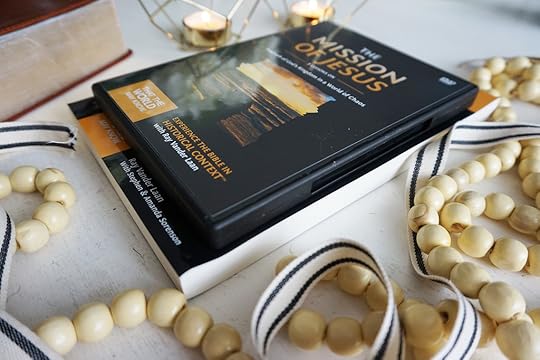

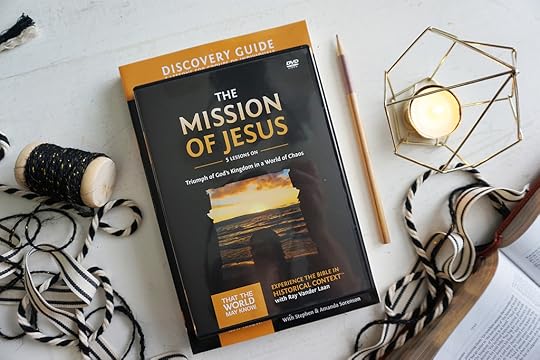
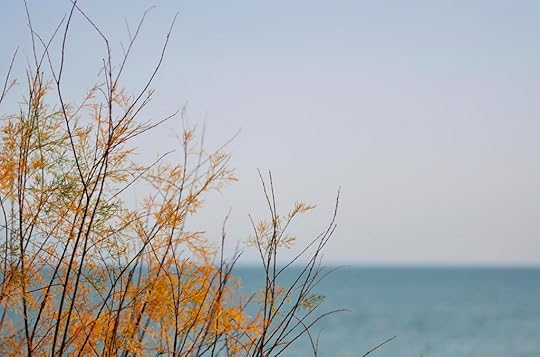
In Capernaum, there is a man possessed by demons. Jesus drives out the demons.
Now, some who saw it were not comfortable with what He did and they accused Him of driving out demons in Matthew 12 by the power of the evil one.
Jesus says, “If I drive out demons by Satan’s power, then Satan is divided against himself and his kingdom will not stand.”
Ah, in Jesus’ mind? There are two kingdoms.
One is the kingdom of the King that He came to speak of. The other one is the kingdom of the evil one.
Two kingdoms that are going to meet; two kings; two loyalties.
But then Jesus continues with these words, “You can’t steal the strong man’s stuff, unless you first bind the strong man.” Who is the strong man in the story? The evil one.
Notice what Jesus is saying, “I took something from that other king. I took this poor man whose life was a mess and I took him away from that other king. And that can only happen if you bind the strong man.”
In some way, the evil power in this world has been bound enough that Jesus at least can take away his stuff.
One day after binding the strong man in Capernaum, the town of the King at least in the mind of the people, Jesus said to the disciples, “Come, let’s go to the other side.”
What were they thinking?
“Really? Over there? That is everything we are not supposed to be. Really? Are you sure?”
And they set out. Fear on their faces maybe? Shaking arms as they row the boat?
I look at the story in Mark 4 and I think the other king saw them coming. So he does what that other king often does and he stirs up that lake. And a storm comes and the boat is rocked.
Jesus isn’t worried.
He is in the bottom of the boat sleeping on a cushion. And the disciples row until they lose strength and courage because they are about to drown. They wake Him up with interesting words, “Don’t you care if we drown?” Jesus got up, and He said to the waves, “Quiet! Be still!” And it was completely calm.
They were amazed. And they said, “Who is this?” They were terrified. “Even the wind and the waves obey.”
There is a different time where the disciples are out on the lake.
They have been rowing all night. There is a storm. Jesus is on the shore worshipping and praying and He watches them all night.
At about 4 AM He goes out to them walking on the water. They see Him come. Peter eventually gets out of the boat. Jesus stills the storm. They were amazed and said, “Surely this man is the Son of God.”
Now think about those two reactions.
In the stilling of the storm they are amazed and terrified and say, “Who is this? Even the wind and the waves obey Him.”
In the other story, they are amazed and say, “Surely this must be the Son of God.”
Think of some other miracles that Jesus did.
Feeding big crowds of people, healing all kinds of diseases, leprosy, and blindness, and lameness, turning water into wine, raising the dead. And they don’t have that reaction. Why such an intense reaction to the stilling of the storm?
Let’s take the one where He walked on water. Listen a moment to the Book. “How can a mortal be righteous before God? He alone stretches out the heavens. He performs wonders that cannot be fathomed. He shakes the earth from its place and he walks on the waves of the sea.” God walks on the waves of the sea, it says in the Book of Job. Jesus began to walk on the waves of the sea and they went, “wow.”
They are from Capernaum. They know the Book.
This time they are amazed and terrified after Jesus is awaken in the bottom of the boat and He says, “Quiet, be still!”
Listen to the Psalm, “They cried out to the Lord in their trouble. He brought them out of their distress. He stilled the storm to a whisper, and He hushed the waves of the sea to silence.”
Does it make sense why Jesus stood up and said, “Be quiet!” those words caught their minds?
It is the Lord who hushes the waves in silence.
We should not think that somehow if we faithfully become part of the mission that Jesus has entrusted to each of us that somehow we will escape those storms.
The evil one will do whatever he can to prevent that mission, whether it is Jesus, Jonah, or you and me.
So we should expect the same.
If you accept that mission to put God on display, to speak and live those words of shalom to the chaos of a broken world, you and I should expect to face the storms the evil one creates.
But don’t forget who has the power to still the storm.
Ray Vander Laan has been a teacher for 35 years and is an ordained minister with the Christian Reformed Church. Since founding That the World May Know Ministries in 1998, Ray has taken over 10,000 people with him on his study tours of Israel, Turkey and Egypt.
The Mission of Jesus video study is the latest in That the World May Know film series. Join Jesus in his world, see how he became the foundation stone, the capstone, the central focus of that plan of redemption that God had. Go to Rome and hear how that good news of Jesus, how Jesus is Savior and Lord confronts the gospel of Imperial Rome. Join Paul in cities like Thessaloniki, and Philippi, Athens, and Corinth and discover the implications of God’s plan of redemption for a very pagan world. And come to the temple itself, where the Holy Spirit descended upon the disciples at Pentecost, fully equipping them to go forth to continue Jesus’ mission themselves. The Discovery Guide includes maps, discussion questions, and teachings to help you and your group go beyond the films. Discover how Jesus triumphantly made God’s presence known on Earth, and how He asks you to do the same—bringing God’s shalom to the chaos of others.
[ Our humble thanks to Zondervan and their partnership of today’s devotion ]

March 26, 2017
Links for 2017-03-25 [del.icio.us]
Our #1 Best-Selling Drone--Meet the Dark Night of the Sky!

Ann Voskamp's Blog
- Ann Voskamp's profile
- 1369 followers


